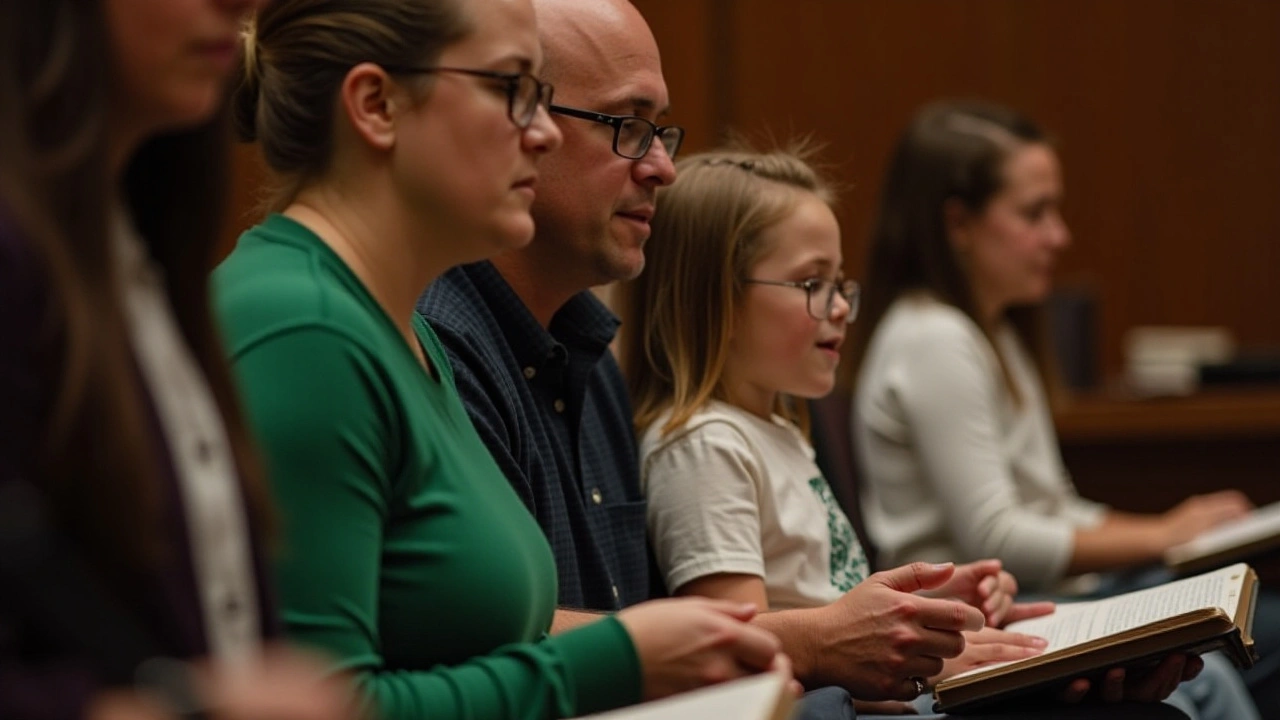Yom Kippur: What It Is and Why People Observe It
Yom Kippur, also called the Day of Atonement, is the most important day on the Jewish calendar. It falls ten days after Rosh Hashanah and marks a time for deep reflection, prayer, and fasting.
How the Fast Works
The fast starts at sunset on the evening before Yom Kippur and ends at nightfall the next day – about 25 hours without food or drink. People also avoid bathing, wearing leather shoes, and intimate relations. The idea is to clear the mind so the focus stays on repentance and getting closer to God.
Most synagogues hold a series of services that last most of the day. The main parts are Kiddush Levanah, the Kol Nekudot (confession), and the final blowing of the shofar at the end of the fast.
Traditions Around the World, Including Africa
In many African countries with Jewish communities – South Africa, Kenya, Ethiopia – families combine local customs with the universal rites. Some light candles early in the evening, while others gather for a communal meal after sundown on the eve of Yom Kippur.
When the fast ends, it’s common to break it with simple foods like bagels, fruit, and tea. In South Africa you’ll often hear about a big breakfast of eggs and fresh fruit that brings families back together after a day of silence.
Even though the core prayers stay the same, language can shift. Services in Kenya might include Swahili verses alongside Hebrew, while Ethiopian Jews (Beta Israel) chant in Geʽez.
If you’re new to Yom Kippur, here are a few practical tips:
- Start hydrating well the day before and eat a hearty meal at sundown.
- Avoid intense exercise on the day of the fast – light walks are fine.
- If you’re sick or pregnant, most authorities allow a modified fast; talk to your rabbi.
- Plan to be near a synagogue for the services; many offer livestreams if you can’t attend in person.
The day ends with the shofar’s powerful blast – a sound that signals forgiveness and a fresh start. Whether you’re in New York or Nairobi, Yom Kippur offers a chance to pause, think about your actions, and set new intentions for the year ahead.
Want more stories on how African Jews celebrate Yom Kippur? Check out our latest reports on community gatherings, special meals, and inter‑generational traditions that keep this ancient day alive today.

Understanding Yom Kippur: A Guide to the Holiest Day in Jewish Tradition
Oct 11, 2024 / 14 Comments
Yom Kippur, occurring from sundown on October 11 to nightfall on October 12, 2024, is the most sacred day in Judaism. It focuses on atonement and forgiveness, instructing Jews worldwide to fast, pray, and seek reconciliation. Traditions include a pre-fast meal and the Kol Nidre service. The day emphasizes reflection and spiritual renewal, aligning with the themes of the preceding High Holy Days.
READ MORERECENT POSTS
- Understanding Angelman Syndrome: Insights from Colin Farrell's Family Experience
- Paul Kagame's Fourth Presidential Term: Assessing His Legacy Amidst Economic Progress and Political Challenges
- Devil May Cry Anime Set to Make a Splash on Netflix in 2025
- Super Eagles Get Boost with Late Call-Ups as World Cup Qualifiers Loom
- Joe Biden's Age Sparks Debate: U.S. Concerns Contrast with Malaysian Political Culture
